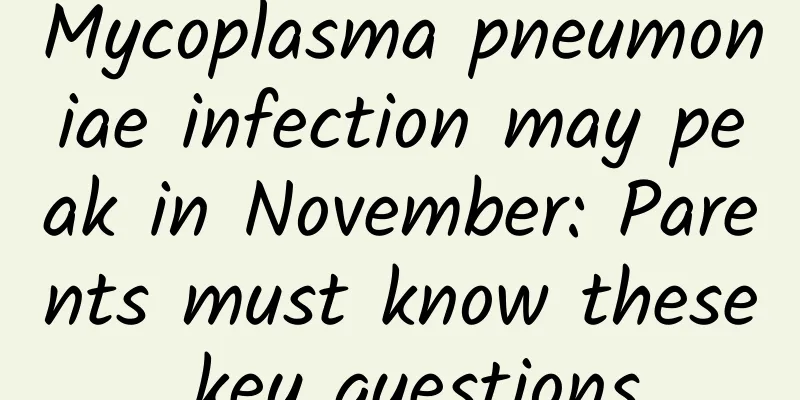Abdominal pain like menstrual cramps

|
The stomach often experiences pain similar to dysmenorrhea, which is largely a symptom caused by enteritis. Enteritis is also a disease that can cause great pain to patients. If it is not treated in time, it is likely to cause other physical problems in patients. Below, I will introduce to you in detail the treatment and prevention methods of enteritis! 1. Pathogen treatment Viral enteritis generally does not require pathogen treatment and can heal on its own. For bacterial enteritis, it is best to select antibiotics based on the results of bacterial drug sensitivity tests. When suffering from bacillary dysentery, because Shigella dysenteriae is widely resistant to commonly used antibiotics, the generally used drugs are co-trimoxazole (cotrimoxazole), pipemidic acid, gentamicin, amikacin, etc. Campylobacter jejuni enteritis can be treated with erythromycin, gentamicin, chloramphenicol, etc. Yersinia enterocolitica enteritis is generally treated with gentamicin, kanamycin, co-sulfamethoxazole, tetracycline, chloramphenicol, etc. Patients with mild Salmonella enteritis may not need antibiotics, while patients with severe cases can use chloramphenicol or trimethoprim-sulfamethoxazole. Invasive Escherichia coli enteritis can be treated with neomycin, colistin and gentamicin with good results. Amebic dysentery, enteritis caused by Giardia lamblia, and Trichomonas can be treated with metronidazole (Flagyl). Schistosomiasis can be treated with praziquantel. Oral nystatin is effective in treating Candida albicans enteritis. Patients with systemic fungal infection need to be treated with amphotericin B. 2. Symptomatic treatment Replenish fluids and correct electrolyte and acidosis. For those who are mildly dehydrated and do not vomit severely, oral rehydration can be given. The WHO-recommended oral rehydration formula is sodium chloride, sodium bicarbonate, potassium chloride, glucose or sucrose, added to water. For patients with severe dehydration or vomiting, normal saline, isotonic sodium bicarbonate and potassium chloride solutions, and glucose can be given intravenously. Drugs that reduce intestinal motility and secretion. Atropine, belladonna, and propantheline can be used in small amounts to reduce intestinal motility, relieve pain, and stop diarrhea. Chlorpromazine can also be used. It has a sedative effect and can inhibit excessive secretion of intestinal mucosa caused by enterotoxins, thereby reducing the frequency and amount of bowel movements. 3. Prevention methods We should strengthen our exercise and improve our physical fitness. Do not eat meat and offal from sick or dead animals. Meat, poultry, eggs, etc. must be cooked before consumption. Do not eat rotten or spoiled food, do not drink raw water, scald fruits and vegetables before eating them raw, and develop a good habit of washing hands before meals and after going to the toilet. Strengthen food hygiene management, and do not sell spoiled food or food contaminated by Salmonella. Pay close attention to food preparation hygiene to prevent food contamination. Do a good job in water source protection, drinking water management and disinfection. |
<<: What foods should not be eaten during ovulation?
>>: Ovulation period starts from which day of menstruation
Recommend
Are chestnuts alkaline or acidic? How to choose chestnuts
The acidity and alkalinity of food is an aspect t...
Acne on the nipple
From the perspective of current clinical medicine...
David test paper weak positive pregnancy
Ovulation test strips are very simple and practic...
Is it normal for a woman to have a twitch above her right eye?
Many of us believe that "left eye twitching ...
What can I eat during my menstrual period to eliminate dirty blood?
During their menstrual period, women will lose a ...
Can I eat longan during menstruation?
The menstrual period is the weakest period for wo...
Leucorrhea bacteria 20
Women's vagina will regularly secrete leucorr...
Once myopia is diagnosed, is it possible to recover?
With the rise of electronic products, more and mo...
Do not perform surgery lightly if the breast nodule is 3 cm
If the breast nodule is relatively large and has ...
What medicine is good for girls with excessive male hormone secretion?
Androgens are generally hormones secreted by men,...
What to eat after ovarian cyst surgery
Ovarian cysts are a relatively common gynecologic...
What should girls do if their menstrual period is long?
Seven days a month is already an unbearable limit...
Taking birth control pills during HPV vaccination
The hpv vaccine can effectively prevent most cerv...
Does vinegar kill mold?
Vinegar is an indispensable condiment in cooking....
What to do if your hands and feet are swollen at 39 weeks of pregnancy
Although women who are 39 weeks pregnant are alre...









